It all began one afternoon in April 2019, when I had an unexpected panic attack shortly after dinner. It was completely out of the ordinary for me, making the experience all the more alarming. I was home alone and had just enjoyed a delicious vegan meal—nothing in it was new or unusual for me.
This is a long read, as I’ll be sharing my 1.5-year journey navigating histamine intolerance. But don’t worry, there’s a happy ending.
Over time, I’ve been asked countless times about my experience with histamine intolerance, but for a while, I wasn’t ready to talk about it. Even thinking about it felt overwhelming and, quite frankly, triggering. It’s also a complex and confusing topic, where no two people seem to agree on the same things. I didn’t want to add to that confusion. Instead, my goal is to share my story in a way that empowers you, not frightens you.
If you’re curious about how I managed it, read on. Just remember, everyone’s experience with histamine intolerance is different. I hope that by sharing mine, I can help ease some of the fear and confusion that often comes with those unexpected, unsettling symptoms.
***
A Little Bit of Context
The panic attack episode and sudden food reactions episode happened while I lived a healthy lifestyle. I was being lectin-light, gluten-free, sugar-free. You know, all the good stuff. In fact, in the days before this episode, I felt on top of the world. I had a lot of energy, and I felt inspired, creative and productive. But, with hindsight, I now know there was a lot of cortisol involved, and it was more like being overstimulated. I did experience some weird symptoms like tingling in my body and pins and needles sensations on my skin. But I was putting all on stress and overworking.
A Scary Episode: the Trigger?
Looking back, I now believe there’s more to the story of that panic attack. A few months earlier, I had a terrifying experience while driving from San Antonio to Dallas in the middle of a rainstorm. The weather was so bad that for a few seconds, I couldn’t see anything in front of me or around me on the highway. In that moment, I felt an overwhelming sense of impending doom, and my body instantly went into fight-or-flight mode. I was shaking uncontrollably, and I couldn’t manage my hands or feet. By some miracle—and with my husband’s calm guidance from the passenger seat—I was able to pull over safely. It took me several minutes to regain control, and once my husband took over the driving, I felt stable again by the time we arrived home in Dallas.
I distinctly remember thinking afterward: That experience must have triggered something in my brain. Although this could be a separate topic to explore, I believe that event reactivated certain fear pathways in my brain.
While I don’t believe food is the root cause of histamine intolerance—especially since I’ve always maintained a clean diet—I do want to point out that my diet was quite rich in high-histamine foods at the time: avocados, spinach, fermented foods, leftover animal protein, canned fish, seafood. Although these foods are typically part of a healthy diet, there can be too much of a good thing. We sometimes forget to balance them with foods that have anti-histamine properties. Over time, I reintroduced most of these foods into my diet in moderation, but I no longer eat leftover animal protein (I will occasionally extend the limit to 24 hours).
The Thread: Confusion and Fear
I don’t believe the panic attack was directly caused by what I ate. Rather, it was my body’s reaction to experiencing strange, unsettling symptoms for the first time in my life—like the sensation of my throat closing and my ears blocking while eating. That episode set off a cascade of sleepless nights, often accompanied by a racing heart that seemed to come out of nowhere. You can imagine how terrifying and confusing it was, especially since I was doing everything “right.”
I was scared and completely in the dark, unsure of what was happening to me. My initial thought was that it might be due to seasonal allergies, even though I’d never really had significant issues with them before. As I started researching seasonal allergies, I stumbled across information about histamines.
All the Information Online Added to the Stress
The more I researched online, the worse I felt. The articles were terrifying. They suggested I wouldn’t be able to leave the house for months out of the year, that I’d need steroids, injections, and antihistamines, and that I’d have to wash my hair and clothes immediately after coming home. These were routines I couldn’t even imagine becoming part of my daily life.
All this information only added to my stress, making me even more fearful of going outside. Do you see the thread? Fear was taking over, amplifying everything, and wreaking havoc on my nervous system.
After yet another panic attack—this time after eating a mix of roasted nuts I had made myself, something that had never bothered me before—we ended up at the emergency room. I was hyperventilating, convinced that it must be pollen or something in the air. Once again, I was overwhelmed by fear.
The doctor ran some basic tests, which all came back normal. She told me it was probably stress and anxiety, prescribing anti-anxiety medication—something I had never needed in my life. I got the prescription filled but never took a single pill. Under pressure from my family, I tried antihistamines one day, but they had no effect. And all the while, I was still desperately searching for answers.
What are Histamines, Anyway?
Histamine is a chemical substance released in inflammatory and allergic responses, as well as regulating physiological functions in the gut and acting as a neurotransmitter for the brain, spinal cord, and uterus. White blood cells, called basophils, and mast cells, produce histamine as part of an immune response to foreign pathogens. (WIKIPEDIA)
According to Dr. Becky Campbell:
“While histamine is naturally found in certain foods, it is also a compound that is found in the cells of the body. Histamine is a very important part of the immune system and also plays a role in inflammation in the body. We also need histamine in order to digest food, move our bowels, boost exercise performance, increase attention, and get blood as well as nutrients and oxygen delivered to different parts of the body. With the right amount of histamine, the body is able to perform these functions as it should.
However, the problem occurs when there is too much histamine. When your histamine levels increase, your tolerance decreases. At this point, histamine can cause a wide variety of symptoms, and these symptoms can vary depending on where it is released in the body.”
Dr. Becky Campbell
My First Aid Kit
I like to remind myself that histamines play an essential role in the body, but too much of them can create problems. I can’t recall exactly how I first discovered the link between my symptoms and histamines, but after being prescribed anti-anxiety medication and learning that anxiety can be a symptom of histamine intolerance, I decided to try Ali Miller RD’s anti-anxiety bundle. I had already been following her on Instagram and was familiar with her book The Anti-Anxiety Diet.
In hindsight, that decision turned out to be one of the best I made during this journey. Somehow, I felt guided to what I truly needed. The Relax and Regulate powder, which contains magnesium bis-glycinate and inositol, helped me relax and sleep better in the evenings. This was a game-changer because I later learned that histamine issues tend to worsen at night, with insomnia being a common symptom.
Insomnia was something completely new for me, as I had always been a good sleeper. The Calm and Clear supplement, also part of the bundle, contains a mix of B vitamins and adaptogens, which turned out to be exactly what I needed. My doctor even ended up prescribing additional adaptogens later on. I didn’t take much of the Gaba Calm, the third supplement in the bundle, since it’s produced through fermentation, and at that point, I had started eliminating anything fermented, including probiotics.
(Just a note: I’m not affiliated with these products in any way, I’m simply sharing what worked for me.)
Fasting, Traveling, and Lowering Stress
At one point, I became so fearful of having reactions to food that I was barely eating at all. I thought that by limiting my intake, my body might have a chance to reset and reduce inflammation. So, I decided to try intermittent fasting, eating just one meal a day.
When it was time for our vacation to San Diego—a trip we had booked well in advance—I was filled with dread. The idea of navigating the airport and flying, something I had done countless times before, now terrified me. This was coming from someone who had spent her adult life traveling and had lived on four different continents. Travel had always been a source of joy, but everything I read online about histamine intolerance and travel had me overwhelmed with fear.
I was also anxious about maintaining my clean, low-histamine diet while staying in a hotel. However, the excitement of visiting San Diego and being near the ocean outweighed my fears. I have such fond memories of that trip, and the only real challenge I faced was the sleepless nights.
Being by the ocean, in a place I loved, had exactly the effect I was hoping for. It grounded me and significantly lowered my stress levels—an important milestone in my healing journey.
A Funny Side Note
When I first started experiencing symptoms of histamine intolerance, I found comfort in an unexpected place—watching Grace and Frankie. I loved the show, and it just so happened to be set in San Diego. In those early days, when I was alone at home, I managed to ease my anxiety and even put myself to sleep by watching episodes on my phone. I know it’s counterintuitive (especially since I normally avoid technology in the bedroom), but something about that show made me laugh and helped me relax enough to fall asleep.
In a way, Grace and Frankie provided the same kind of soothing escape that San Diego itself did on our trip.
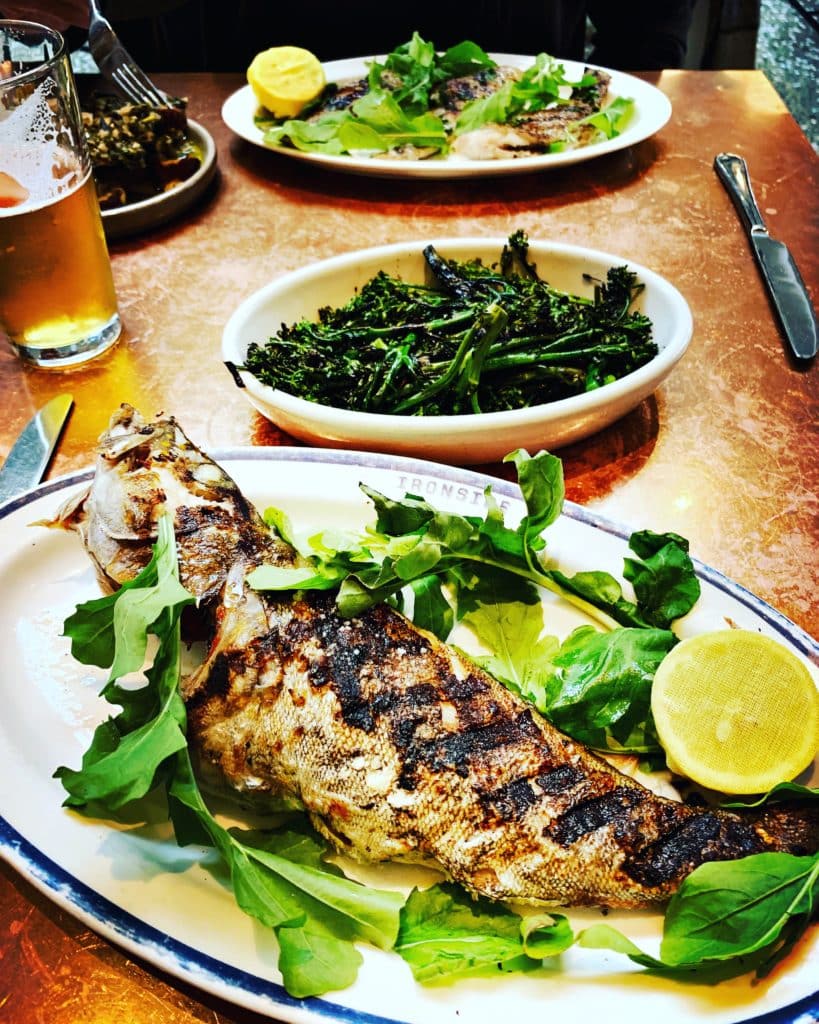
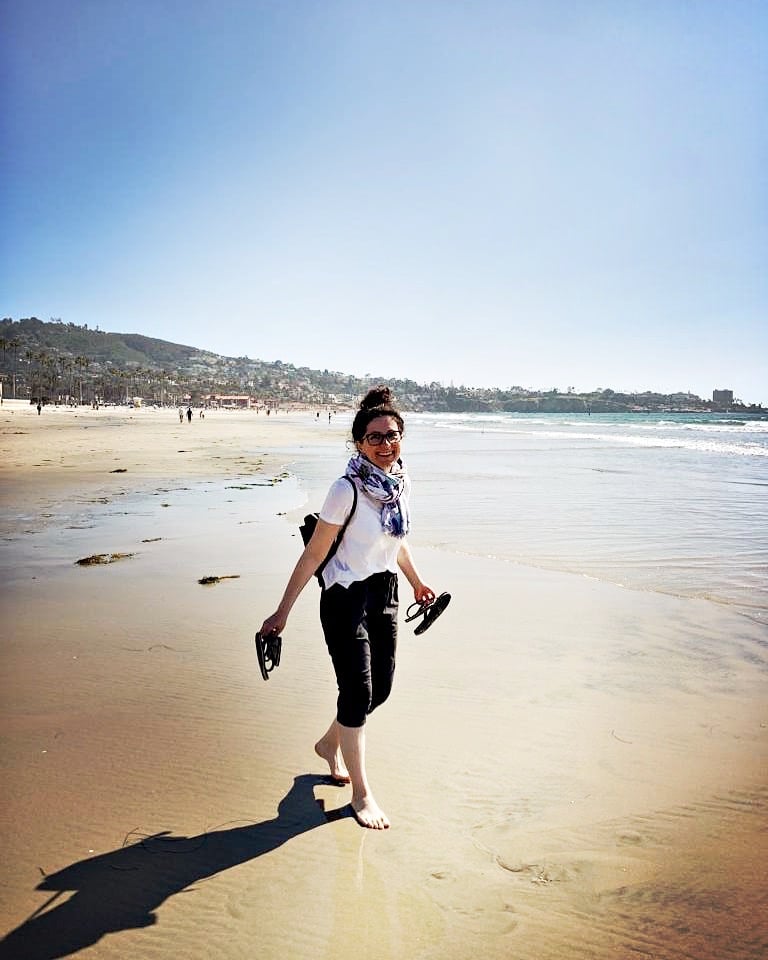
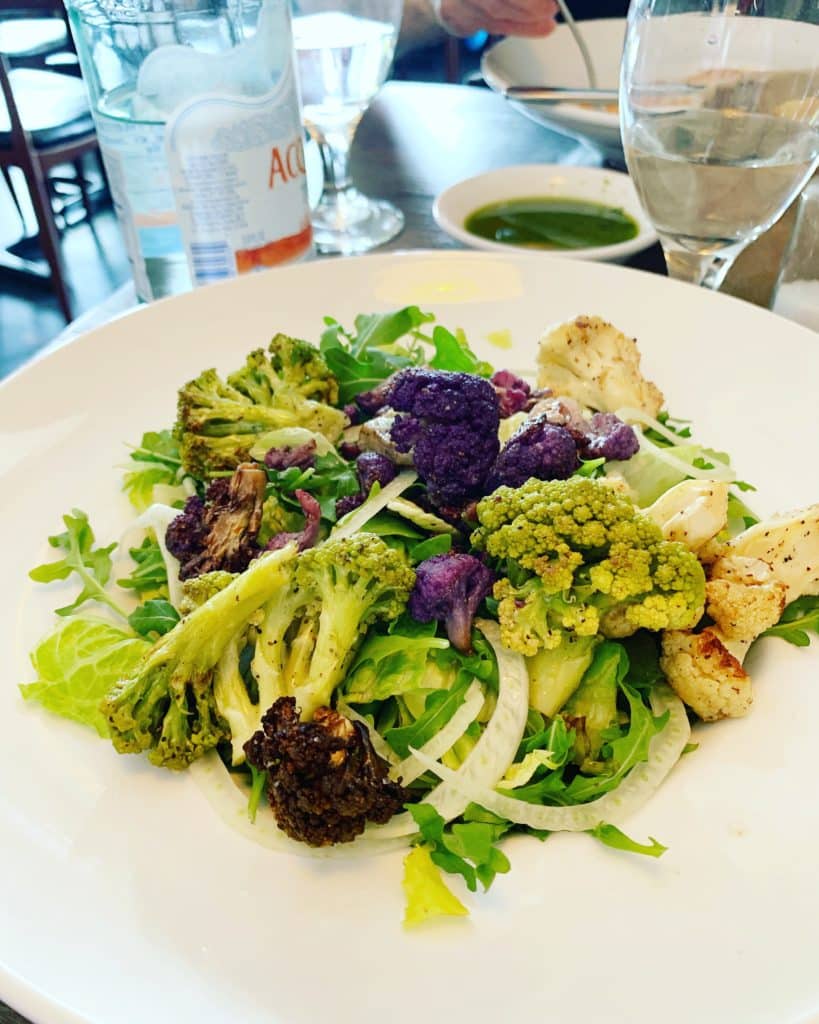
Unexpected (and Positive) Side Effects
A small side note: When I adopted the Plant Paradox lifestyle and began following a lectin-free diet in August 2017 (at 37), one of the most surprising benefits was the resolution of most of my PMS symptoms. For the first time in my life, I experienced periods with minimal discomfort. Before the Plant Paradox, my pain level during periods was a debilitating 10; afterward, it dropped to a manageable 2. While I still felt a bit off during my cycle, it no longer interfered with my daily life or required medication.
To my amazement, after starting the low-histamine diet, the first period I had came with zero symptoms—something I had never experienced before. It was a completely pain-free cycle for the first time in my life.
I believe these positive changes in my health are largely due to the low-histamine diet and possibly eliminating dairy (although years later, I can eat dairy again).
Not Everything You Read Online Will Help You (Including This Post)
As I continued reading about histamine intolerance online, I came across all sorts of alarming warnings: people with “histamine intolerance” supposedly don’t handle air travel, crowds, noise, heat, cold, pollen, or even exercise well. This information started to make me fear traveling, something that had always been a central part of my life.
The reason I bring this up is because so much of what you find online is incredibly scary, and it can fuel the fear and stress you’re already feeling. That’s exactly what happened to me.
Even though I found myself becoming fearful of things that, just weeks earlier, I had considered completely normal, I also understood how my nervous system works. I made a conscious effort to stay connected to who I truly was, reminding myself that I wasn’t defined by “histamine intolerance.” It was something I was experiencing, not something that defined me.
Instead of getting lost in the fear, I shifted my mindset. I chose to be grateful for the signals my body was sending me and curious about what they were trying to tell me.
I Was Never ‘Histamine Intolerant’
If you search for low-histamine foods online, you’ll find plenty of lists—but none of them match. There are a few reasons for this. First, no two people experience histamine intolerance in exactly the same way. Second, there’s little solid research on the topic, and measuring histamine levels in foods, especially plants, is incredibly challenging. And third, many bloggers create their own lists without emphasizing that histamine intolerance is highly individual.
I disagree with the idea that histamine intolerance is an illness, which is why I chose not to label myself that way. I never called myself “histamine intolerant.” Interestingly, my functional medicine doctor never gave me that label, either. While we discussed histamine intolerance and its potential root causes, we focused on addressing those causes and resolving the symptoms. At no point did he say, “You are histamine intolerant,” and that was empowering for me. It helped me avoid identifying with my symptoms, which I believe played a role in my recovery.
The tests my doctor ordered revealed some imbalances, toxicities, and signs of gut dysbiosis. From there, we began working on addressing those underlying issues.
If You Have to Leave this Page with Only One Lesson, This Is It
Work with a functional medicine practitioner. The symptoms you’re experiencing are your body’s way of signaling that something deeper is going on, and it’s struggling. Your body needs support.
Only through comprehensive blood tests and partnering with a doctor who understands these complexities can you uncover the root cause. A functional medicine practitioner will also consider the emotional and psychological aspects of your health. If they don’t, it’s essential that you explore those areas on your own, as they are a crucial part of the healing process.
In my case, the tests revealed that I needed help detoxifying, particularly from heavy metals, so we worked on that gradually. Once my body received some foundational support, we moved on to a one-month liver detox using Quicksilver Scientific’s BlackBox II (as your doctor about this).
Managing my stress levels was also key to my recovery. For that, I used an infrared sauna, exercised regularly, meditated, and spent time in self-reflection. Remember how I became fearful of going outside, thinking the air was triggering my symptoms? I worked hard to overcome that fear and reconnect with my true self. I’ve always loved nature, and being outdoors has always been healing for me. Nature is my healer. Overcoming that fear was a significant victory, and it’s something I’m very proud of.
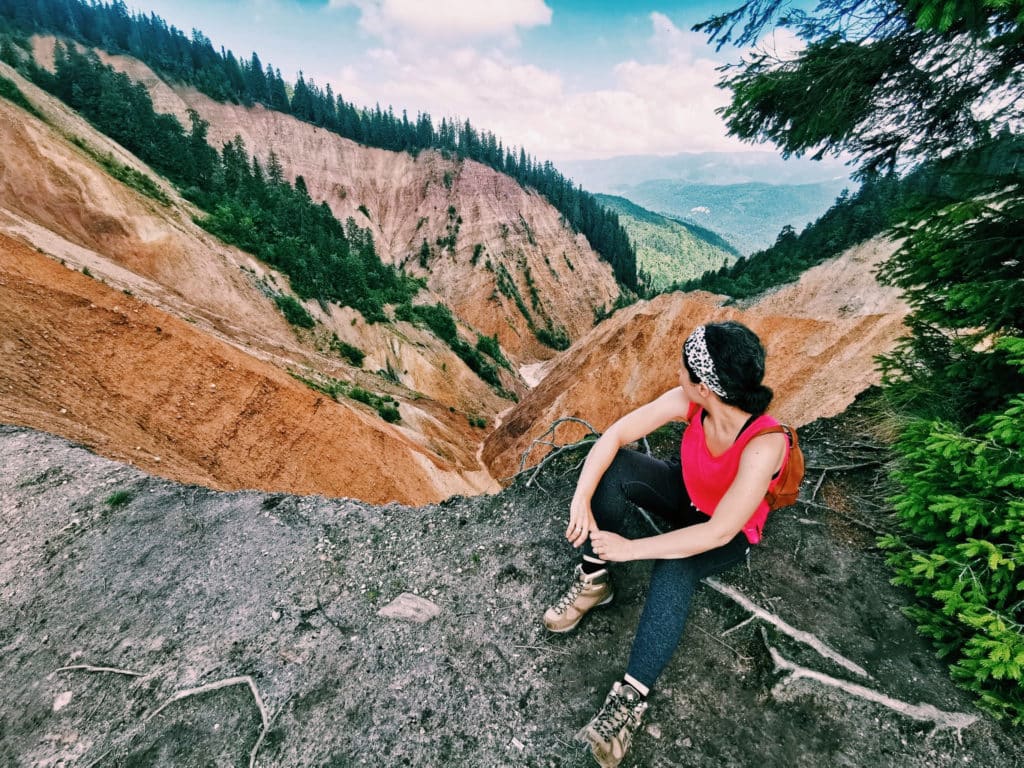
Finding Reliable Sources of Information
Fortunately, there are a few trustworthy sources out there. In addition to the valuable guidance from my doctor, these were the main resources that helped me along the way:
Histamine Overload Symptoms
Even long after my initial histamine intolerance episode, I continued to experience unsettling symptoms. My ears often felt blocked, my throat would tighten, and I had difficulty swallowing—even when eating low-histamine foods. This reinforced the idea that histamine intolerance isn’t black and white when it comes to food lists.
Other symptoms included difficulty breathing, a racing heart, persistent throat clearing, and the feeling that many foods were mucus-producing. I also dealt with occasional acid reflux, irregular heartbeats, sleepless nights (particularly around ovulation and my period), and a lingering ear infection, along with sinus congestion and a runny nose. Oddly enough, I developed an itch on the side of my right foot.
Although I didn’t experience common symptoms like migraines or hives, I remained sensitive to strong smells (like perfumes and gas), which I now recognize as a sign of histamine intolerance. Interestingly, I also discovered that scrolling through social media triggered symptoms, and there are emerging reports suggesting that EMFs could contribute to histamine release—so I reduced my screen time and focused on more meaningful activities.
Remember, symptoms vary greatly from person to person, so it’s important to stay mindful of your own body’s signals.
How to Clear Histamine From Your Body: Supplements
Supporting your body’s ability to manage histamine overload is essential. Below are the key supplements that worked for me, based on expert advice and personal experience:
Histamine Breakdown Support
- Seeking Health’s Histamine Digest: A patented enzyme derived from porcine (pork) kidney extract that supports the healthy breakdown of histamine in areas such as the small intestine, colon, placenta, kidney, and more. Use discount code CLAUDIA10 for 10% OFF (affiliate link).
- Quicksilver Scientific Nanoemulsified HistaAid: A fast-acting blend of flavonoids designed to help maintain healthy histamine levels. This supplement was particularly effective for me when others failed to work.
Other Key Supplements
- Probiotics: Probiota HistaminX from Seeking Health is formulated with histamine-degrading bacterial strains. While probiotics were initially problematic for me, I was able to tolerate them later on. Use discount code CLAUDIA10 for 10% OFF (affiliate link).
- Magnesium and Vitamin D: Essential nutrients for overall health and supporting the body’s natural processes.
- B-Complex Vitamins: Helps with detoxification and nervous system function.
- Liposomal Glutathione: An important supplement for detoxifying the body.
- Quercetin: While many forms of quercetin triggered symptoms for me, HistaAid from Quicksilver Scientific was the only one I could tolerate.
- Rosemarinic Acid – recommended by Dr. Steven Gundry as a powerful anti-histaminic
Gut Healing Support
- Biocidin: A natural antibiotic that supports gut health by addressing bacterial and viral infections, which are often linked to histamine issues.
- Biocidin LSF: Helped with my ear infections and provided essential gut healing support.
- Important Step: A thorough gut investigation is crucial—check for parasites, fungi, and harmful bacteria that may be contributing to excess histamine production.
Hormone and Histamine Connection
- Many women experience histamine intolerance in their 40s, often linked to perimenopause and hormonal imbalances such as fluctuating estrogen and progesterone.
- Resources:
- Dr. Lara Briden explores the link between hormonal changes, dairy intolerance, and histamine issues in women. I recommend her book, Hormone Repair Manual.
- Dr. Becky Campbell’s book, The 4-Phase Histamine Reset Plan, is a valuable resource for managing histamine overload.
Caution with Supplements
- Some supplements may trigger symptoms, so it’s important to work closely with your doctor to find the right ones for your body.
- Even with my doctor’s guidance, we had to try multiple options to discover what worked best for me.
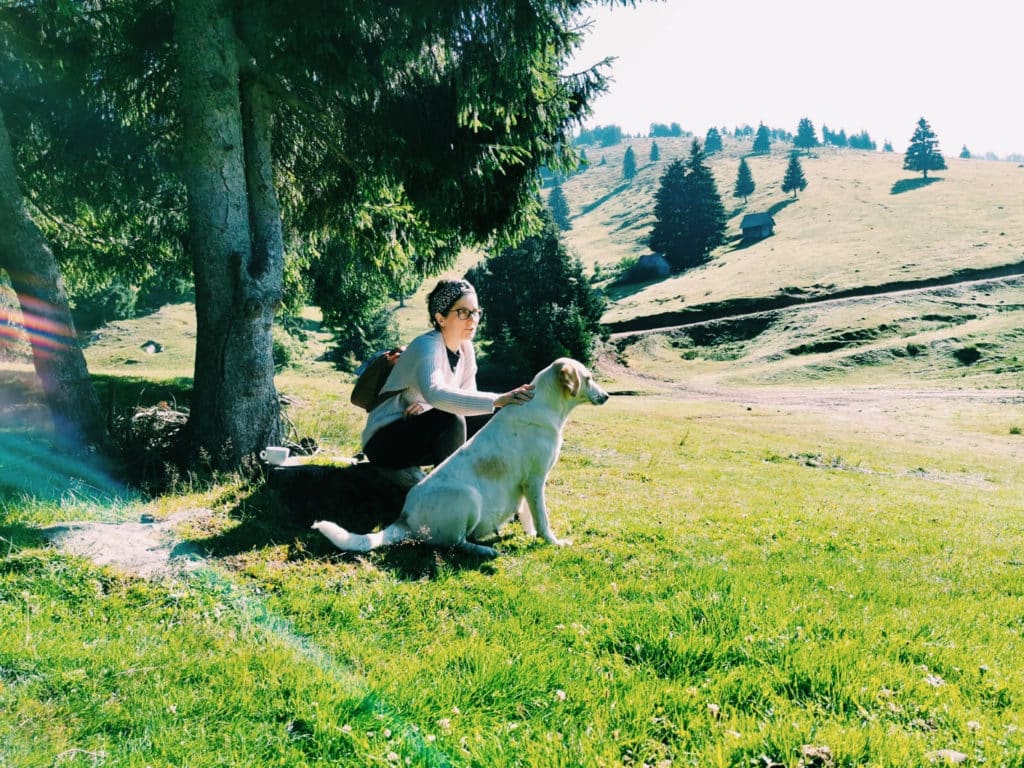
Guide to Low-Histamine Cooking and Food Preparation
When I first began managing histamine intolerance, I had to eliminate many of my favorite foods. It was a challenging process, but I eventually learned how to create delicious, low-histamine meals while staying compliant with my dietary needs.
For a detailed guide on this topic, including food lists and meal preparation tips, I encourage you to read my article Guide to Low Histamine Cooking and Food Preparation.
Regarding histamine food lists, it’s important to remember that no two people will react to the same foods in the same way. My favorite resource on this topic is the Swiss Interest Group Histamine Intolerance (SIGHI) which notes:
“Not all foods are equally intolerable for everyone, depending on the individual causes of histaminosis. We recommend following our compatibility list strictly for the first 4–6 weeks. Then, carefully reintroduce foods to see how they affect your individual sensitivity, preventing unnecessary long-term dietary restrictions.”
SIGHI
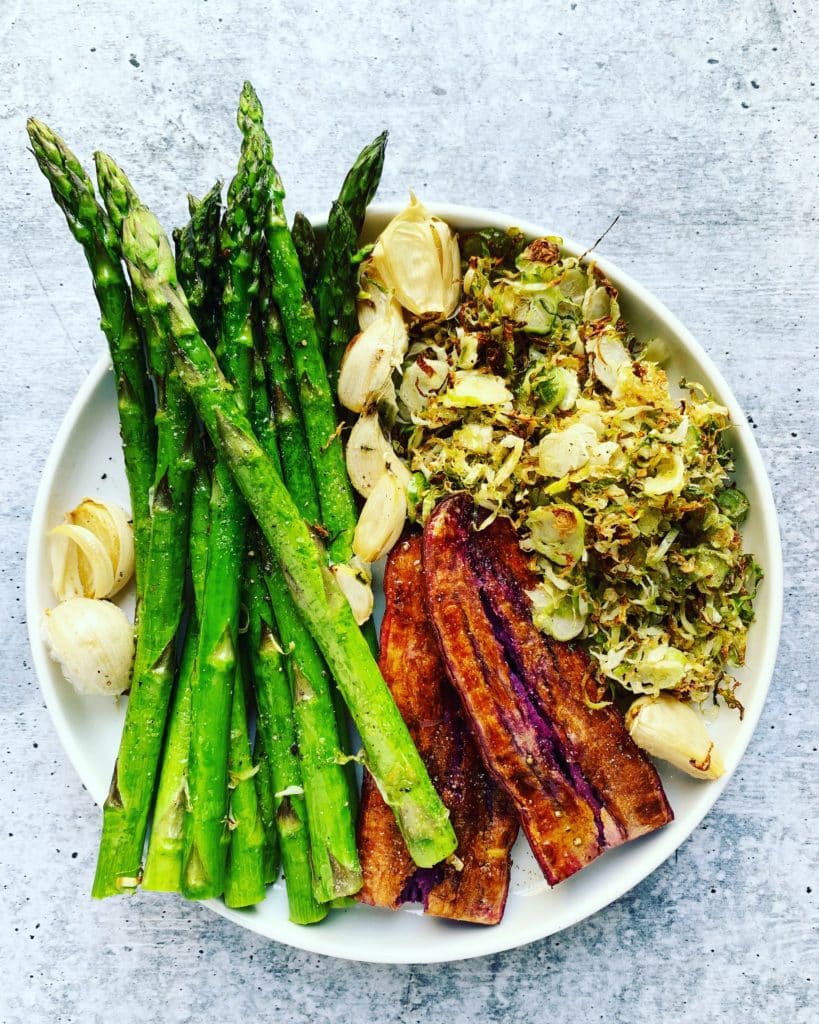
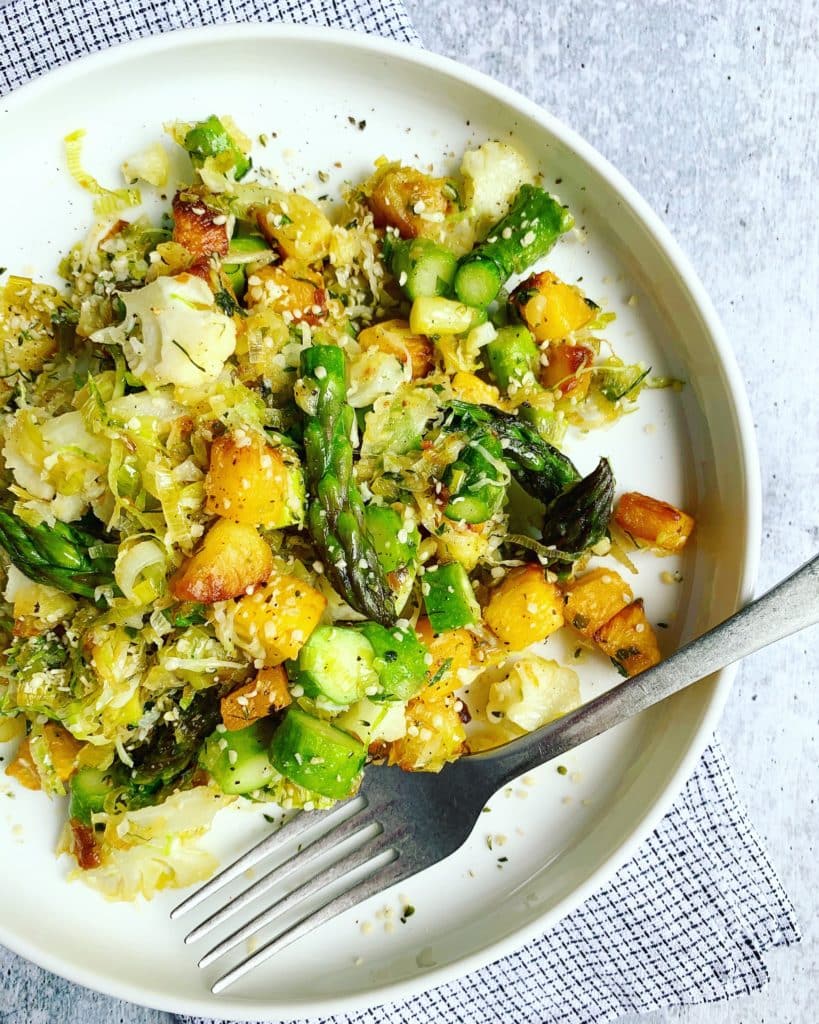
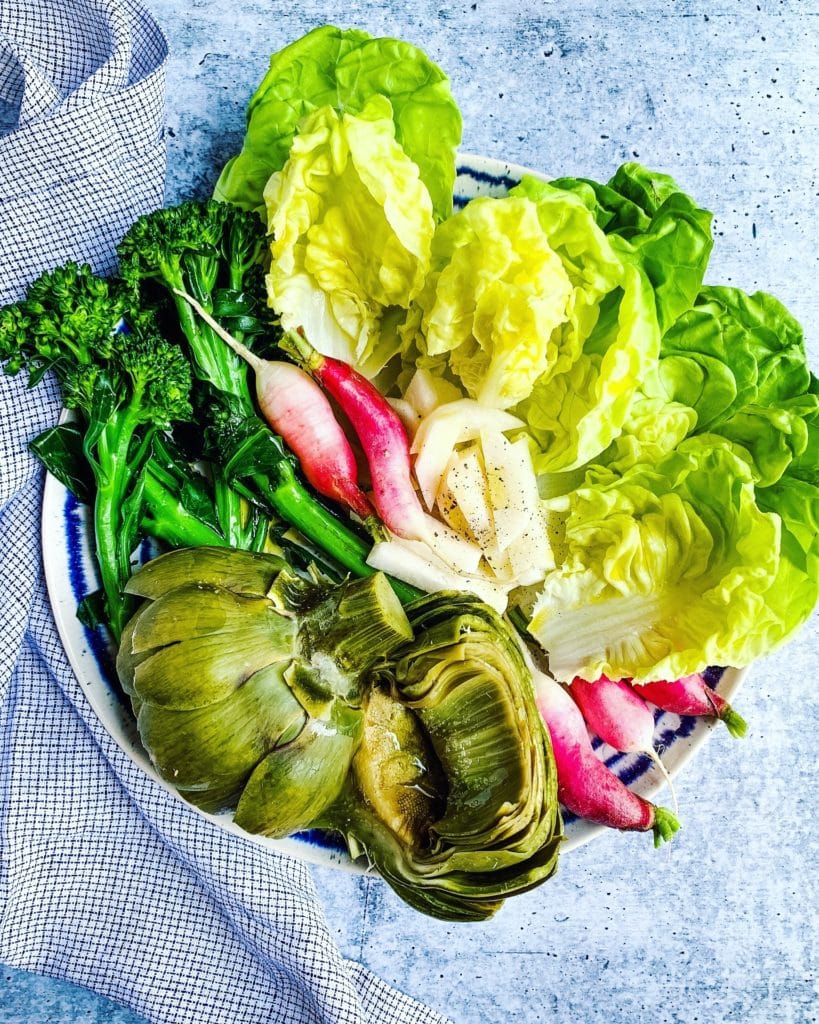
Don’t Obsess Over Food
While diet plays an important role in managing histamine intolerance, it’s just the tip of the iceberg. True recovery comes from building immune resilience, improving vagal tone, and fostering what some call “anti-fragility”—the ability to thrive under stress. My goal is to teach my body to be more resilient, identifying real threats instead of falling into a cycle of ever-increasing food restrictions.
I’ve learned through my training at the Integrative Institute for Nutrition (IIN) that what truly nourishes us goes beyond food: relationships, career, spirituality, and physical activity are just as vital. Diet is a secondary source of energy—so choose foods that support your overall health, but don’t let food become your sole focus (and an additional stressor).
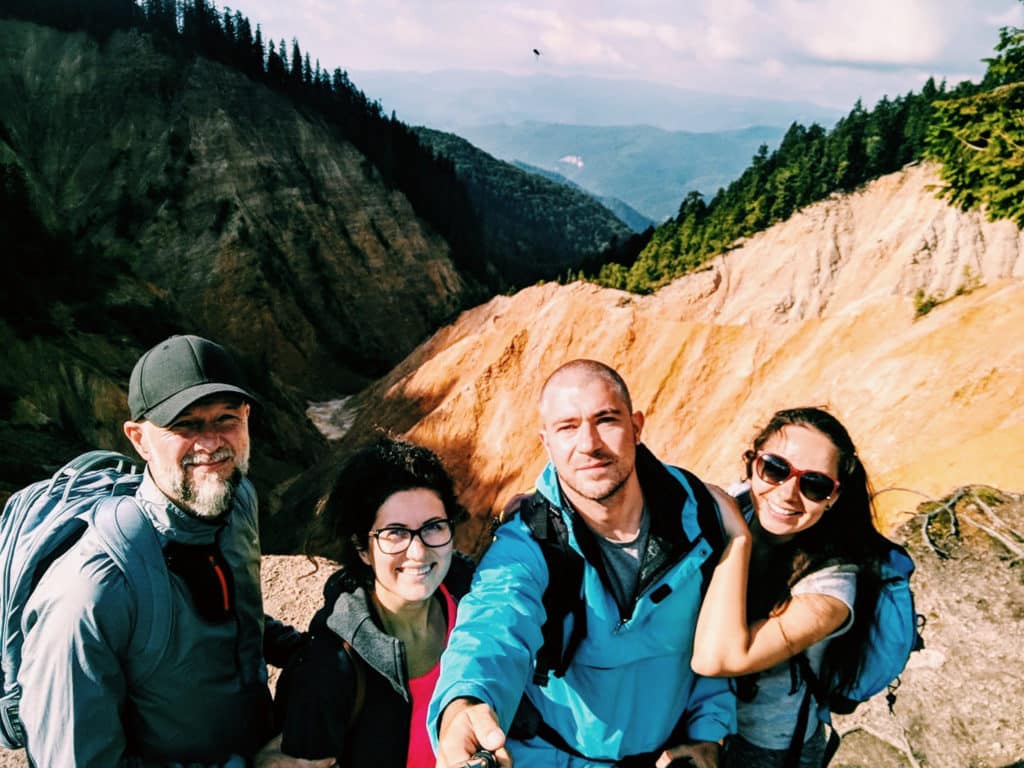
Recovery and Resilience
I can’t pinpoint exactly when I began to recover from histamine intolerance, as the process happened in stages. The journey was often confusing, with blurred lines between progress and setbacks, but I’m happy to say that most of my symptoms have resolved.
Now, when I push too hard, I feel it, but I know how to manage it. Simple practices like pausing and taking a deep breath can make a big difference. Beyond dietary changes, building resilience in my nervous system and focusing on “anti-fragility” became essential.
Tools That Contributed to My Healing
- Keeping a gratitude journal
- Yoga and meditation
- Meaningful relationships
- Reducing screen time and social media
- Spending time in nature
- Dancing, decluttering, and doing what I love
One book that helped me shift from a victim mindset to one of empowerment is Breaking the Habit of Being Yourself by Dr. Joe Dispenza.
Stay Positive, Help Your Body Recover
Recovery is different for everyone, but staying positive is key. Don’t let fear take over—listen to your body’s signals. It’s telling you something is out of balance and needs attention. With time and effort, you will discover amazing things about yourself through this journey.
Sharing My Story
When I first experienced histamine intolerance, I was desperate to find recovery stories. I didn’t come across many, which is why I waited 1.5 years to write about my own experience. Health is not a linear path, and no two journeys are the same, but I hope my story offers you some guidance and hope.
Recap: How to Clear Histamine from the Body
- Mindset: Histamine intolerance is not a life sentence. It’s a symptom of an imbalance, likely in the gut. Work with a functional medicine practitioner to restore that balance.
- Manage Stress: Stress is a major trigger. Find ways to lower it daily.
- Low-Histamine Eating: Eliminate high-histamine foods for a few weeks, but don’t obsess over lists. Focus on clean, healthy eating.
- Food Intolerances: Get tested for intolerances, but remember these often resolve once gut health is restored.
- Trauma: Address any underlying trauma, which may contribute to symptoms.
- Sleep: Prioritize better sleep; consider tools like The Tapping Solution.
- Supplements: Use supportive supplements during a histamine crisis (see earlier in the article).
- Gut Cleanse: Work with a doctor to treat gut dysbiosis and cleanse for parasites.
- Live, Love, Laugh: Engage in activities you love, spend time with loved ones, and enjoy nature.
Final Thoughts
If you have questions, feel free to ask in the comments, and I’ll do my best to help. While I am an Integrative Nutrition Health Coach, this is NOT medical advice. For personalized guidance, I recommend working with a functional medicine practitioner or discussing this topic with your doctor.
*This post contains some affiliated links, which means I get a small commission if you choose to purchase something via one of my links, at no extra cost to you.


138 Comments
Holly
January 13, 2023 at 4:47 pmDid the Root Clean Slate make you feel worse for awhile or cause detox symptoms? Did you start with the 10 drops right away or work up to that? I also get tightness in my neck and throat after eating and am intrigued by how you said this product helped with those symptoms.
Claudia
January 14, 2023 at 4:00 amHi Holly, I started with one drop in the morning and one at night, and increased with one every day until I got to 10 (x2 days). I didn’t have any detox symptoms, but I made sure I drank a lot of water, move, did lymphatic massage, ate good food to support my detox pathways. To me, Clean Slate made a huge difference. Shortly after, I also started Zero-In and Restore. I took all of them for 6 months and will do this regularly every year. I hope this helps. xx
Jean
December 22, 2022 at 5:38 pmHi Claudia, a great read thank you. I’m in a similar position to your journey.
Two brief questions for you:
1. Do you happen to have more info or a reference about how it links with dairy intolerance and childhood tonsillitis? I’m curious, it seems so accurate, but odd. Lol.
2. Did it effect your gallbladder and liver too? I’m not sure if cause and effect on this one.
Happy holidays. May you have a healthy, happy and wealthy new year 🙂
Claudia
December 23, 2022 at 6:47 amHi Jean, thank you for the kind words! Regarding your first question, it was in a podcast with Dr. Lara Briden I heard this information. She was talking about women’s health and was making the connection between hormones, childhood tonsillitis, and histamine intolerance / MAST cell activation. But I don’t have other sources. For me it was so poignant because she was basically describing my childhood. I think histamines do affect the entire system, and I did have to get some liver support, but I think is more complex than that. I think the histamine problems come when your liver is already overloaded with toxins. Luckily I did not have gallbladder problems. Happy holidays to you too, and a wonderful new year! Claudia
Stacy
November 11, 2022 at 8:40 amSo happy I found this. I’m in the middle of my elimination diet and healing my gut. My question is this, did you have any side effects during your elimination? I’m working with a functional health Dr and have done ALL the tests and she said I probably have a cold and to test for covid (negative) and I know this isn’t a cold. Constant running nose, congestion, cough, clear mucus, itchy, gross eyes. It seems like my allergies are in overdrive (which I already have a lot of).
Claudia
November 14, 2022 at 4:02 amHi Stacy, my healing process was long, and I had symptoms for a long time, but I would not say they wore worse. If you eliminate high histamine foods and the allergy-like symptoms get worse, there might be another trigger. Are you taking any supplements to help you with allergies?
Elena
October 17, 2022 at 8:53 amClaudia, thank you so much for you answer and recommendations 🤗
Claudia
October 18, 2022 at 9:57 amMy pleasure <3
Julia Durning
July 26, 2022 at 12:13 pmHello, Thank you for sharing your experiences. I was cold turkey’d off xanax in 2016 and went into a severe withdrawal and did not know that is what it was. I was reinstated on the drug 9 months later and started to get better. I had severe histamine issues and became allergic to smells, some food and was very sick. Also I had and have now the EMF radiation and had to wear masks while watching TV and while on the computer and could not use my cell phone close to my face. After being back on the drug for over 2 years, started having stroke and heart attack symptoms. I found a site on the internet for people coming off of benzos and realized then that what I had experienced in 2016 was benzo withdrawal and I started to taper the xanax. I was on 4 mg a day when I started the taper after 3 1/2 years of hell, I am now at .178 mg a day of this drug. About 5 months ago, I started having reactions to most all food. I figured out by researching and through this benzo website, that I am dealing with histamine intolerance again! Not only to smells but to most all foods. It is now causing panic attacks and a lot of other uncomfortable symptoms. My doctor wants me to take claritin and pepcid to help with the histamine. I am very sensitive to meds now but am able to take a low dose of claritin and will start a low dose of the pepcid tomorrow. My CNS is sensitive too because of being exposed to chemicals in 2007.
This is such a hard life to live, and I have tried to limit what I eat, and it is hard. Each time I make a cut of the xanax, more symptoms and the histamine issues get worse. The EMF issues are back as well, and I wear a mask when I am watching TV and while on the computer. Thank you for letting me know I am not crazy!!!
I appreciate that you posted all of this and to let me know that there is hope. I need that right now more than ever before.
I am hoping my issues will resolve once I am off this drug and that is going to take a few more months. I am not looking forward to having to endure this for months to come. I cannot take supplements due to sensitivity!
Thank you again!
Claudia
July 27, 2022 at 3:54 amDear Julia, thank you so much for sharing your story. I think you are on the right path; hang in there. Remember, you (and your nervous system) are craving for safety; that’s why it identifies all these triggers as potentially dangerous (but they are not). I’m not sure if you are aware of Kelly Brogan’s book, Own Your Self; maybe that will resonate with you. Also, anything with building resilience and retraining your nervous system to feel safe again is key. I just saw a post yesterday by Dave Asprey, and he recommended low doses of Claritin and Pepcid for 5 months for post-covid inflammatory symptoms. I can imagine that’s something that will help you. Please feel free to get in touch anytime, if you need anything. Hugs and love, Claudia
Julia
July 27, 2022 at 11:44 amHi Claudia,
Thank you so much for your reply. I appreciate it so much! Yes, my nervous system wants and needs safety. I was not aware of the book Own Your Self but just looked it up and ordered it! Thank you for that! Also thank you for telling me about Dave Asprey recommending low doses of claritin and pepcid. I am taking 5 mg of claritin and am going to start with 5 mg of pepcid today hoping that it helps. From what I have read the pepcid is supposed to help with the histamine. I have been so sensitive to meds that I have been holding off taking the pepcid but am going to try it anyway! I even tried a Vit C supplement a couple months ago and had a reaction! It is crazy!
I am also on omeprazole and have to wean off that now as well as the manufacture I have been getting this from no longer makes it and I am too sensitive to other brands to try another brand. Tried that and had a reaction. Also, the omeprazole interacts with the xanax so that has been a problem too. Was put on this for gastritis when I had h pylori 5 years ago, another drug that I should have been taken off of that I now have to deal with.
I just have to keep working to get off the benzo and deal with the awful withdrawal including histamine and hopefully heal and get better!
Thank you again! Take care! You are an inspiration!
Hugs and love to you as well!
Claudia
July 28, 2022 at 3:22 amHi Julia, please write me an email, and I’ll reply. I have a recommendation for you, but it’s easier to explain in an email. My address is claudia.curici@gmail.com <3
Julia
July 30, 2022 at 5:08 pmHi Caludia, I have sent you an email! Thanks!!
Julia
Elena
October 8, 2022 at 4:50 amHi Claudia!
Just read your post after 1 year of anxiety, insomnia, tachycardia and weird sinus and year infections.
Only 3 weeks ago I managed to link my symptoms with food, because usually my reactions were delayed. But I was in vacation and after eating shrimps with feta cheese and tomatoes I had a severe tachycardia, couldn’t breath and I was extremely fatigued ( no surprise as that are all very high histamine 🤦♀️)
Next day I searched the internet for a possible answer to this weird symptoms and realized that all these horrible year I was struggling with histamine intolerance. Already 2 weeks on a low histamine diet and I already see an improvement.
I was blown away by the fact that the food I have been eating caused me this… I have seen many doctors this year and all were telling me that is only in my head and I should take antidepressants (which I refused)
You mentioned in one article that you are in Romania, so am I 😊
Could you recommend a practitioner that can help me navigate this? I did a DAO test, still waiting for results, but it is hard to know what to do to find the root cause.
Thank you for this article!!!
Claudia
October 8, 2022 at 6:07 amHi Elena, I’m happy you finally found something that gives you some relief. Yes, histamine reactions are just the tip of the iceberg; there is usually an underlying cause or multiple causes, from stress, and unprocessed trauma, to gut dysbiosis, heavy metals toxicity, mold exposure, untreated parasites, etc. In Romania, I wholeheartedly recommend Transilvania Healing Center in Cluj. I think is the only place where they’ll look at you holistically, and they’ll treat you accordingly. It’s non-invasive and reassuring. Also, if, in the meantime, you are looking for something to further release your symptoms and start working on some of the causes, try the Trinity Pack from ROOT (linked in the article). Can’t wait to hear back from you when you’ve made even more progress. It’s a journey but there is light at the end of the tunnel :). Hugs, Claudia